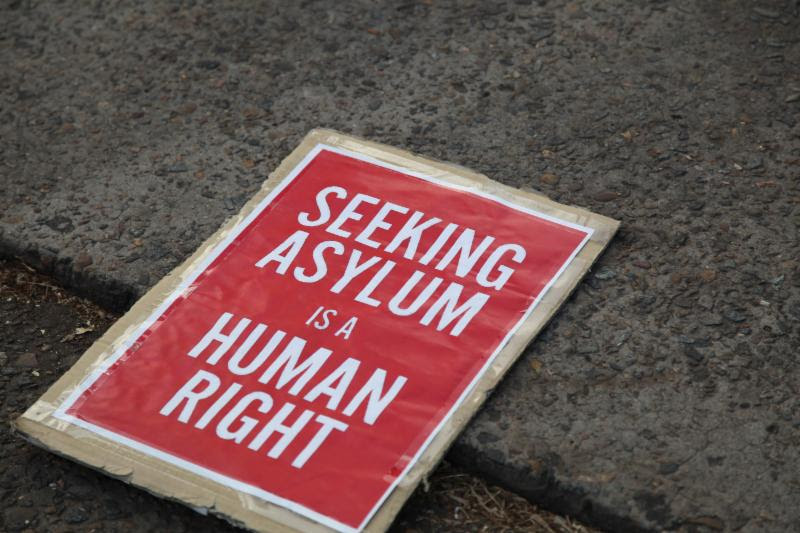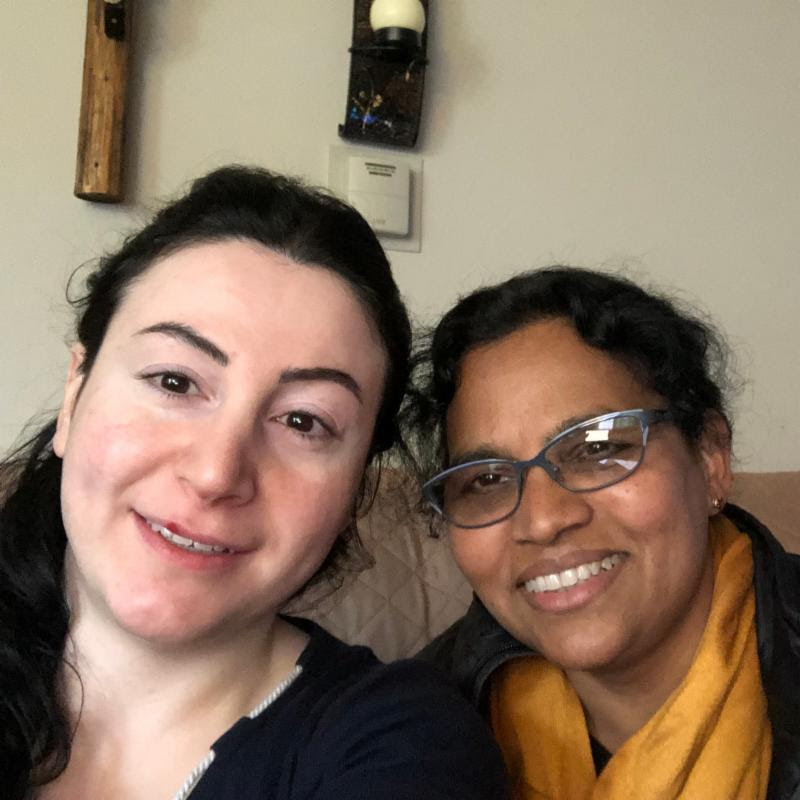The news is filled with harrowing images from the U.S. Southern border. Images that depict the conditions experienced by those seeking refuge in the U.S.
I recently spent a week in the border city of McAllen, TX. I want to stress the horror of all that is taking place there.
I volunteered at the McAllen Catholic Charities Humanitarian Respite Center, helping immigrant families who had been detained at Customs and Border Patrol (CBP) facilities. Spending time with these families and hearing their stories was one of the hardest things I have ever done. I had visited Central America and walked in solidarity with those fighting for the right to remain in their home countries; I had spoken with those on the Brownsville/Matamoros bridge waiting to cross into the U.S.; and yet there is something distinct in the faces of those I have seen leaving CBP detention.
Families told me about the awful conditions they faced in detention.
The CBP facilities were freezing cold, even outside the notoriously frigid holding cells that many call Las Hieleras (iceboxes). I met one woman from Honduras who had traveled here with her two children, 8 and 10 years old. She had to spend two days in the icebox with her children, and then another five at a packed facility, eating only frozen bread with lunch meat. There were not enough mattresses for people to sleep on, and many were sleeping on cold concrete floors, in very crowded conditions. On top of that, the mattresses were picked up every morning at 4 am. Even if people could fall asleep (the lights were never turned off), there wasn’t much rest to be had.
I was unable to find one family share that they were able to shower in the CBP facilities. Most told me how their children were stripped to either just a diaper, or a diaper and a onesie. If those got dirty, the families had no options.
I held sick children of all ages, the youngest a baby of 3 days old.
One woman from Guatemala shared that her 8-month-old was not sick prior to entering detention, but with the cold and the illness inside, left with a 104 fever. Many of the families left detention with respiratory illnesses, the flu, pink eye and strep throat. There were many stomach-born illnesses as well, and yet no one was offered any medical care, or even pain relief.
I share these stories because it is extremely important to bear witness. It is also important to remember these three things:
1. These families are asylum-seekers who are coming to our Southern border to seek refuge. They are fleeing their homes because they have no other options. They undertake long and arduous journeys because of extreme conditions in their homelands: gang violence and extortion, gender-based violence, political persecution, and economic duress.
2. Many are not coming in through the official ports of entry, because the ports are very, very slow if functioning at all. I visited the Brownsville/Matamoros bridge where migrants can officially cross into the U.S., but no one had been allowed to cross in a full week. Those who find other ways to cross, are turning themselves to Border Patrol the minute they arrive on U.S. soil. Seeking unofficial crossings is the only option for many families who cannot afford to wait months or longer to be processed at ports of entry. Many have no money left after their journey.
3. Once families arrive, they still have a long way ahead of them before they can begin to settle. The attention to the Southern border is extremely important but we also must stay engaged through the entire process. When families leave the McAllen Humanitarian Respite Center, the next step is reunification with family members living in the U.S. Many are confused about what to do/where to go, with little to no money for the long bus trip. They will arrive into communities being told they cannot work, and will face a difficult legal battle to obtain asylum. They also must find ways to heal from the trauma they have experienced both in their home countries and along the journey.
These are all the important reasons why organizations like RT are so important.
RT’s work with asylum-seeking families is vital in the final stages of their journeys. Our agency supports educational opportunities so families can begin to settle and hopefully heal. We must be outraged at the treatment of those coming to seek refuge in our country. We MUST stay engaged and supportive in the long journey immigrants make in order to find safety and a new home.





















![[Pictured: highest admissions ceilings of previous Administrations]](https://images.squarespace-cdn.com/content/v1/5032cfc0e4b00d577d18b5e8/1569626134972-7QPF1YMCPODMSWBN9MER/image-asset.jpeg)



![[left to right: Laura Vaudreuil and Jane Pak]](https://images.squarespace-cdn.com/content/v1/5032cfc0e4b00d577d18b5e8/1569526338017-ZONEOTUQ53PXVR5FW5FC/jane%2Band%2Blaura.jpg)









